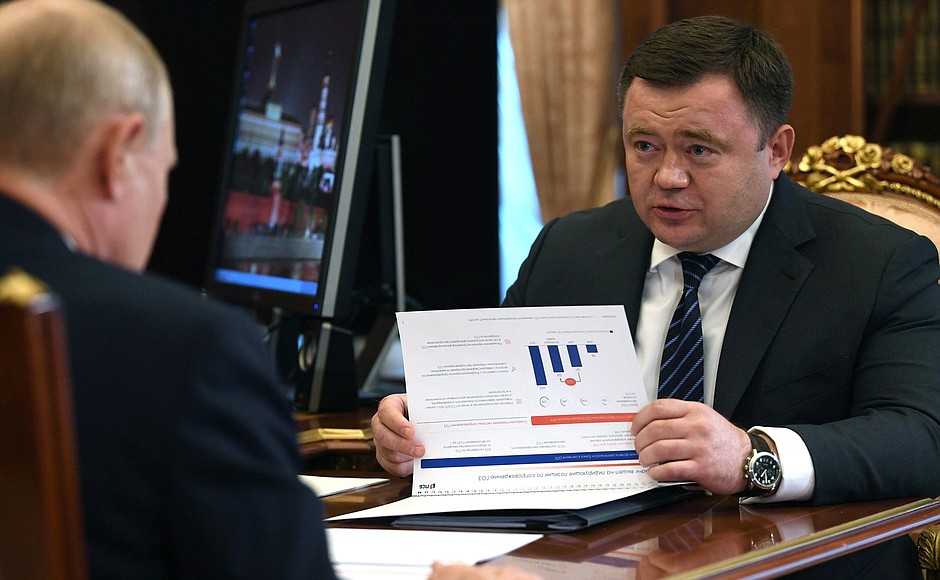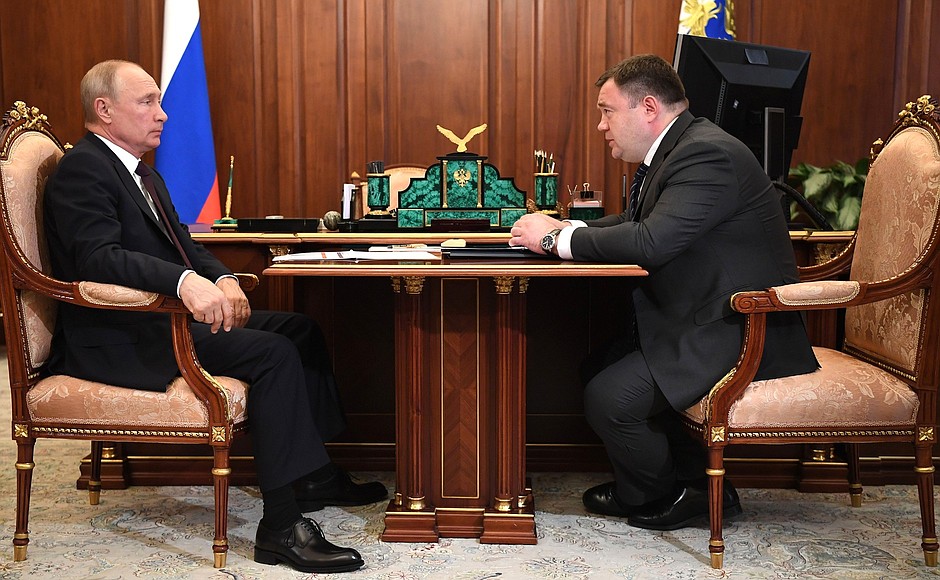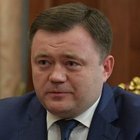President of Russia Vladimir Putin: Your institution must serve as a base for our defence industry complex. I know that there are developments and I would like to hear your opinion on the process and the bank’s overall work.
Please.
Promsvyazbank CEO Pyotr Fradkov: Thank you very much, Mr President.
You have instructed us to establish a base bank at Promsvyazbank for the military-industrial complex.
Today we can say for sure that the bank has taken a leading position both in terms of supporting settlements on public defence orders and in terms of lending to industrial enterprises. The status of a base bank is envisaged by law. In this sense, we have come a certain way in order to, so to speak, institutionalise Promsvyazbank as a bank that is fundamental to the military-industrial complex.
Speaking about public defence orders, today the bank supports at least 60 percent of all contracts in this sphere. At the same time, the bank accounts for up to 50 percent of the rest; but it is of principal importance that, despite the active growth of these figures, we have managed to ensure continuous support for public defence orders even though a large number of contracts were received from other authorised banks. Despite some, let us say, concerns about the continuity of this support that we had at the beginning when discussing how to start the bank’s work, there were no setbacks or glitches. The state client, the Ministry of Defence, fully confirms that all the support is continuous, and the tens of thousands of operations on the public defence orders that we carry out daily are maintained by our infrastructure.
From the point of view of financing defence industry enterprises, we can now say that we already have the largest portfolio of all the banks that have always been involved in this, that is, we are gradually taking on this function. Now the limits on lending to the defence industry — both credits and guarantees — amount to more than 600 billion rubles. Moreover, 430 billion of this amount has already been provided, that is, the enterprises are already making use of the funds.
At the same time, I would like to draw special attention, Mr President, to the fact that the average portfolio rate of return is 7.7, which is a fairly good indicator. Moreover, we, as a bank, have developed our own programme of additional preferential financing for public defence orders and contracts under public defence orders; under this programme, 120 billion rubles have already been allocated at a rate of no more than 6.5. Of course, given the changing macroeconomic conditions, including the reduced key rate, we will move on in terms of reducing the cost of financing enterprises. We are in contact here both with enterprises and with the Defence Ministry.
Of course, we do not stand aside either from the great work related to the ambitious programme being carried out to make financial improvements to the defence industry. A government commission has been created under your executive order to deal with this. We, as a defence bank, are also involved in terms of taking on a certain part of the assets for future restructuring. There are quite serious indicators, numbers, I will report separately on this.
In general, I would like to note that at the same time the bank continues to develop as a universal bank. We also agreed on this at the very beginning, that the bank would be…
Vladimir Putin: A full-fledged financial institution.
Pyotr Fradkov: …a full-fledged financial institution precisely in terms of providing quality services to consumers. In this sense, we did well in 2019. In terms of an indicator like return on capital, which is an important market indicator, we are among the top three state-owned banks. We have a return on capital of 9 percent, which means that, in general, we are trying to work efficiently from the point of view of such a market banking principle, an instrument, despite the fact that we are also solving quite specific special tasks.
For example, in terms of such an indicator as the growth rate of assets, we ranked first, and now our assets amount to more than 2.2 trillion rubles and have grown quite significantly over 2019 alone.
No doubt, we support all the industries in which the banks are working. These are small- and medium-sized businesses. We know them well and we are one of the leaders in granting e-guarantees to these companies that are involved in public purchasing. There are 42,000 open accounts. This is a fairly large number, in other words, we are not ignoring this industry although we are involved in other areas as well.
As for retail, such an area as military mortgages is very important. We have a portfolio of 35 billion rubles with a rate of less than 9 percent. I can really say that we are the absolute leaders in this field. We are not forgetting either such a programme as the family mortgage that is granted at a 4.5 percent rate. In general, we are paying much attention to this.
Proceeding from what has already been said, we have of course, taken a most active part in implementing the Government’s anti-crisis measures. I am referring to small and medium-sized businesses and retail. As for individuals, we have provided them with over 6.5 billion rubles’ worth of loan deferrals. As for low interest rate mortgages, we have even made further commitments and issued loans at 5.85 percent, which is 0.75 percent lower than in the Government’s normative acts. This was highly popular and we approved over 8 billion rubles under this programme.
Returning to small and medium-sized businesses, we are among the top three companies supporting them. We primarily focused on programmes to support employment. These are loans at a zero or 2 percent rate for restoring business, for urgent needs. In all, over 47,000 applications for a sum of over 60 billion rubles have been endorsed. So, we are active. I am not even mentioning major businesses or the restructuring of loans, everything linked with favourable floating assets of systemic companies.
Of course, based on this, we can fully see ourselves there and will implement the national programme to restore the economy that is being adopted now. We can see our own openings such as the National Champions project, the military-industrial complex and the advanced financing of various industries.
At the same time, Mr President, we have realised that it is also important for us that, when working with the military-industrial complex, we cannot and must not concentrate on working with enterprises only. The system is much larger and it looks like we will develop programmes and focus on working with people, I mean employees of the military-industrial complex and officers of law enforcement agencies.
This is an enormous task, because we can see a certain range of issues that must be addressed such as frequent large debt load; it is also necessary to lower the mortgage rate to encourage some enterprises to retain young specialists, for example, at the enterprises of the military-industrial complex. And, as I said, we have already begun developing such programmes for certain enterprises. This also includes personal data protection, I mean the specific status of these categories of employees when using financial products. This means that we can see we have a role in creating a certain ecosystem around the military-industrial complex, like a bank, but perhaps not with bank-like products and we will work in this field quite actively.
Vladimir Putin: How is your portfolio structured?
Pyotr Fradkov: Our portfolio is structured as follows: 1,250 billion for big businesses; 260, almost 270 billion for individuals: this includes both mortgages and consumer loans; and 220 billion for small and medium-sized businesses.
Vladimir Putin: I see.
Thank you.
<…>


